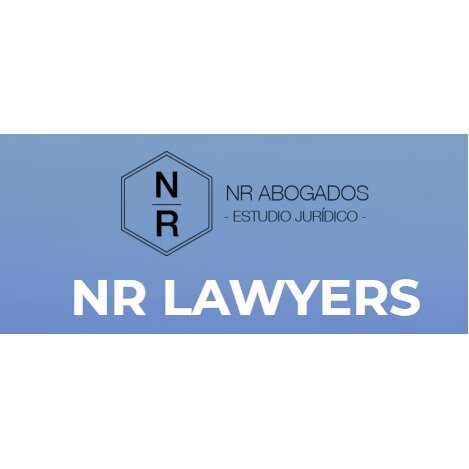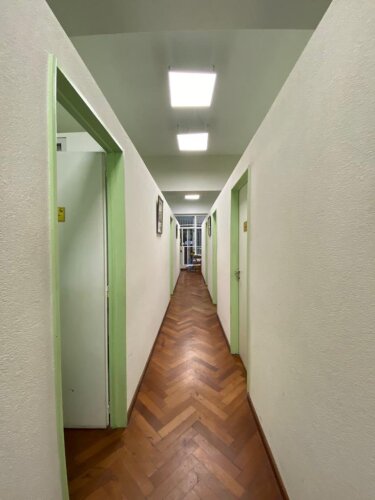Best Will & Testament Lawyers in Argentina
Share your needs with us, get contacted by law firms.
Free. Takes 2 min.
Or refine your search by selecting a city:
List of the best lawyers in Argentina
About Will & Testament Law in Argentina
In Argentina, the legal framework for Wills and Testaments is governed by the Civil and Commercial Code. A will is a legal document that expresses a person's wishes regarding the distribution of their property and the care of any minor children after their death. There are several types of wills in Argentina, including holographic (handwritten), public (drawn up before a notary), and closed (sealed) wills. Each type has its own formalities that must be complied with to ensure the document’s validity. Argentine law also dictates forced heirship rules, meaning certain relatives are guaranteed a portion of the estate, limiting the extent to which an individual can freely distribute their assets.
Why You May Need a Lawyer
There are several scenarios in which you may need a lawyer's assistance when dealing with Wills and Testaments in Argentina:
- Drafting a will to ensure it meets all legal requirements and truly reflects your wishes.
- Understanding the forced heirship rules and how they impact your estate planning.
- Handling disputes among beneficiaries or claims from third parties.
- Administering an estate, including managing debts and taxes.
- Navigating complex situations, such as international assets or businesses.
Local Laws Overview
Key aspects of local laws relevant to Wills and Testaments in Argentina include:
- Types of Wills: Public (notarial), holographic (handwritten), and closed (sealed) wills, each with specific requirements.
- Forced Heirship: Certain relatives (spouse, children, and in some cases, parents) are entitled to a reserved portion of the estate.
- Inheritance Taxes: While there are no national inheritance taxes in Argentina, some provinces, like Buenos Aires, impose their own inheritance taxes.
- Revocation and Alteration: Wills can be altered or revoked by the testator at any time before death.
Frequently Asked Questions
What is a public will in Argentina?
A public will is prepared by a notary in the presence of two witnesses. It is the most common type of will in Argentina as it provides formal verification of authenticity.
Can I disinherit my children in Argentina?
Completely disinheriting children is challenging due to the forced heirship rules, which ensure they receive a reserved portion of the estate.
How is an estate divided if there is no will?
If there is no will, assets are distributed according to intestate succession laws, prioritizing close family members like children and the surviving spouse.
Are foreign wills recognized in Argentina?
Yes, but they need to be legalized and translated into Spanish. Consultation with a legal professional is advisable to ensure compatibility with Argentine law.
What is a holographic will, and is it valid in Argentina?
A holographic will is entirely handwritten and signed by the testator without witnesses. It is valid in Argentina but can face challenges in proving authenticity.
What happens if a will is not executed correctly?
Failure to meet legal requirements can render a will completely or partially invalid, resulting in intestate succession rules applying to part or all of the estate.
Are there inheritance taxes in Argentina?
There are no federal inheritance taxes, but certain provinces, like Buenos Aires, impose their own. Professional advice is recommended for tax planning.
Can a will be contested?
Yes, wills can be contested on grounds such as undue influence, lack of capacity, or failure to meet legal formalities. Legal representation is key in such cases.
How can I ensure my international assets are included in my Argentine will?
It's crucial to seek legal advice to draft your will in a way that considers multinational jurisdictions and complies with relevant laws.
What role does a notary play in the will-making process?
A notary ensures the will's compliance with legal formalities, records it, and can advise on the testator's intentions and capacity.
Additional Resources
For further guidance, consider reaching out to the following resources:
- Local Bar Associations for lawyer referrals.
- The Colegio de Escribanos for notarial services.
- Provincial government offices for inheritance tax guidance.
- Online legal databases for comprehensive legal information.
Next Steps
If you require legal assistance with wills and testaments in Argentina, consider the following steps:
- Research and contact legal professionals specialized in estate planning and inheritance law.
- Prepare documentation related to your assets and family situation to facilitate legal consultations.
- Schedule consultations to discuss your objectives and legal options.
- Engage a professional to assist with drafting, modifying, or executing your will and any related legal documents.
Lawzana helps you find the best lawyers and law firms in Argentina through a curated and pre-screened list of qualified legal professionals. Our platform offers rankings and detailed profiles of attorneys and law firms, allowing you to compare based on practice areas, including Will & Testament, experience, and client feedback.
Each profile includes a description of the firm's areas of practice, client reviews, team members and partners, year of establishment, spoken languages, office locations, contact information, social media presence, and any published articles or resources. Most firms on our platform speak English and are experienced in both local and international legal matters.
Get a quote from top-rated law firms in Argentina — quickly, securely, and without unnecessary hassle.
Disclaimer:
The information provided on this page is for general informational purposes only and does not constitute legal advice. While we strive to ensure the accuracy and relevance of the content, legal information may change over time, and interpretations of the law can vary. You should always consult with a qualified legal professional for advice specific to your situation.
We disclaim all liability for actions taken or not taken based on the content of this page. If you believe any information is incorrect or outdated, please contact us, and we will review and update it where appropriate.
Browse will & testament law firms by city in Argentina
Refine your search by selecting a city.














